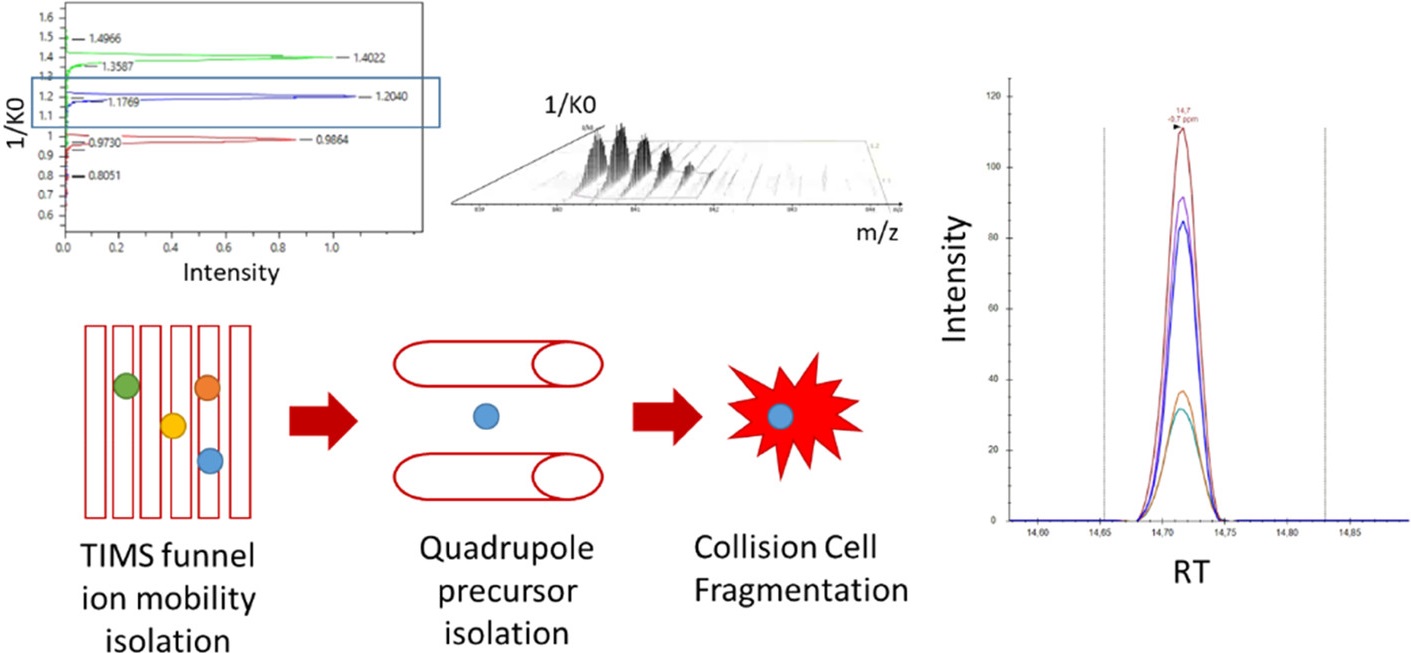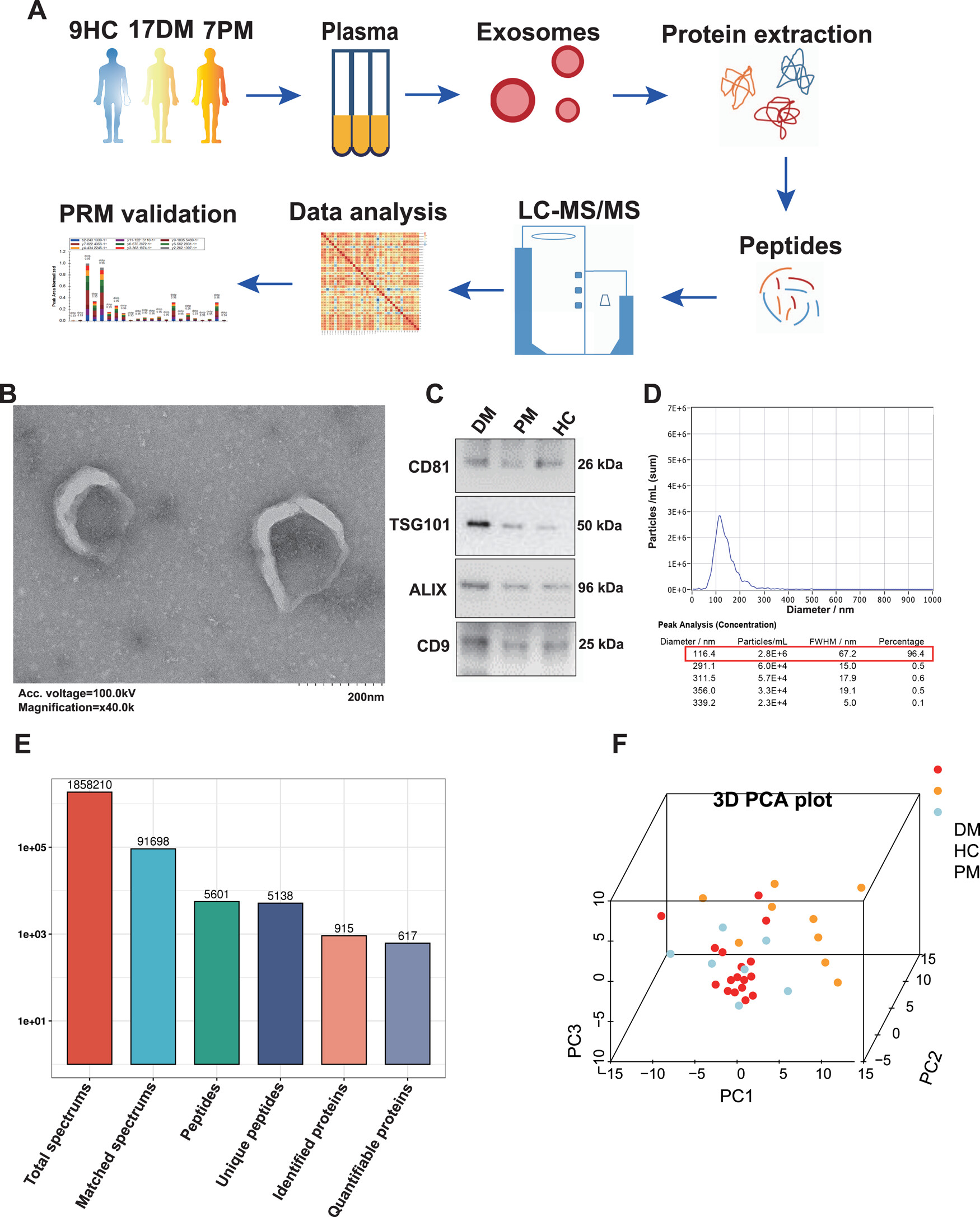Four-Dimensional Exosomal Proteomic Detection Service
Four-Dimensional Exosomal Proteomic Detection Service utilizes 4D proteomics technology to perform faster and more sensitive qualitative and quantitative analysis of the exosomal proteome.
As small membrane-bound vesicles secreted by cells, exosomes carry various biomolecules (such as proteins and RNA) and play essential roles in intercellular communication. Exosomes are not only critical vehicles for cell-to-cell communication but also reflect the pathological state of their originating cells through their molecular contents. Analyzing proteins within exosomes helps identify potential biomarkers and investigate molecular mechanisms related to diseases.
Due to the complexity and low abundance of exosomal proteins, their comprehensive analysis requires high-sensitivity and high-resolution techniques. 4D proteomics meets this need. 4D proteomics adds a fourth dimension—ion mobility—on top of the traditional three dimensions: retention time (RT), mass-to-charge ratio (m/z), and ion intensity. Ion mobility separates ions based on their shape and collisional cross-section, allowing the differentiation of peptides with extremely small m/z differences. This enables the detection and identification of low-abundance protein signals that would otherwise be difficult to distinguish, significantly enhancing the resolution and sensitivity of proteomic analysis.

Brzhozovskiy A. et al. Analytical Chemistry. 2022.
Leveraging an advanced mass spectrometry platform, MtoZ Biolabs offers Four-Dimensional Exosomal Proteomic Detection Service for in-depth analysis of exosomal proteins, providing critical molecular insights to support disease mechanism research, prognosis evaluation, and the development of personalized therapeutic strategies.
Analysis Workflow
1. Sample Preparation and Exosome Isolation
Select appropriate methods based on project requirements to isolate high-purity exosomes, followed by quality validation of the exosomal preparations.
2. Exosomal Protein Extraction and Digestion
Extract total proteins from exosomes and enzymatically digest them to obtain peptide fragments.
3. Four-Dimensional Proteomic Mass Spectrometry Analysis
Separate peptides using nano-LC and analyze them with a four-dimensional mass spectrometry system, collecting complete mass spectrometry data.
4. Data Analysis and Report
Analyze mass spectrometry data using professional software, including protein identification, quantification, and bioinformatics analysis, and deliver a detailed report with full analytical results.
Applications
Applications of Four-Dimensional Exosomal Proteomic Detection Service include, but are not limited to:
Disease Biomarker Discovery
Comprehensive profiling of the exosomal proteome to identify potential disease-associated biomarkers.
Tumor Microenvironment and Immune Regulation Studies
In-depth analysis of immune regulatory proteins within tumor-derived exosomes to uncover their roles in immune evasion and microenvironment remodeling.
Signaling Pathway Analysis
Systematic investigation of key signaling pathways involving exosomal proteins.
Foundation for Multi-Omics Integration
Providing essential proteomic data to support subsequent integrated analyses with exosomal metabolomics, transcriptomics, and other omics data.
Services at MtoZ Biolabs
Leveraging an advanced mass spectrometry platform, MtoZ Biolabs offers Four-Dimensional Exosomal Proteomic Detection Service that enhances the detection sensitivity of low-abundance exosomal proteins, enables comprehensive profiling of exosomal protein heterogeneity, and delivers high-quality quantitative and functional data to support in-depth research. MtoZ Biolabs, an integrated Chromatography and Mass Spectrometry (MS) Services Provider, provides advanced proteomics, metabolomics, and biopharmaceutical analysis services to researchers in biochemistry, biotechnology, and biopharmaceutical fields. Our ultimate aim is to provide more rapid, high-throughput, and cost-effective analysis, with exceptional data quality and minimal sample consumption.
FAQ
Q. What Types of Samples can be Analyzed with the Four-Dimensional Exosomal Proteomic Detection Service?
This service can accommodate a wide range of sample types, including cell culture supernatants, plasma, serum, urine, other body fluids, and pre-isolated exosome samples.
Q. Can Phosphorylated Proteins, Membrane Proteins, and Low-abundance Proteins in Exosomes be Effectively Detected?
Yes. Based on our four-dimensional proteomics platform, we achieve high-sensitivity and high-resolution detection of low-abundance proteins, membrane proteins, and phosphorylated proteins in exosomes. By incorporating trapped ion mobility spectrometry (TIMS) for an additional layer of peptide separation, this service significantly enhances the detection of low-abundance proteins in complex samples. Combined with nano-LC-MS/MS, this approach improves coverage of membrane proteins, signaling proteins, and other challenging targets, ensuring comprehensive and accurate profiling of critical exosomal proteins.
Deliverables
1. Comprehensive Experimental Details
2. Materials, Instruments, and Methods
3. Total Ion Chromatogram & Quality Control Assessment (project-dependent)
4. Data Analysis, Preprocessing, and Estimation (project-dependent)
5. Bioinformatics Analysis
6. Raw Data Files
Case Study
This study used Four-Dimensional Exosomal Proteomic Detection technology to systematically analyze the exosomal proteome derived from the plasma of patients with Dermatomyositis/Polymyositis (DM/PM), uncovering disease-associated molecular abnormalities. The results revealed that complement and coagulation cascade-related proteins were aberrantly activated in exosomes from DM/PM patients, with key molecules such as C3, C4, and fibrinogen significantly elevated. These findings suggest that exosomes play a crucial role in mediating inflammation, immune-mediated tissue damage, and vascular pathology in DM/PM.

Meng S. et al. Journal of Proteome Research. 2022.
How to order?







